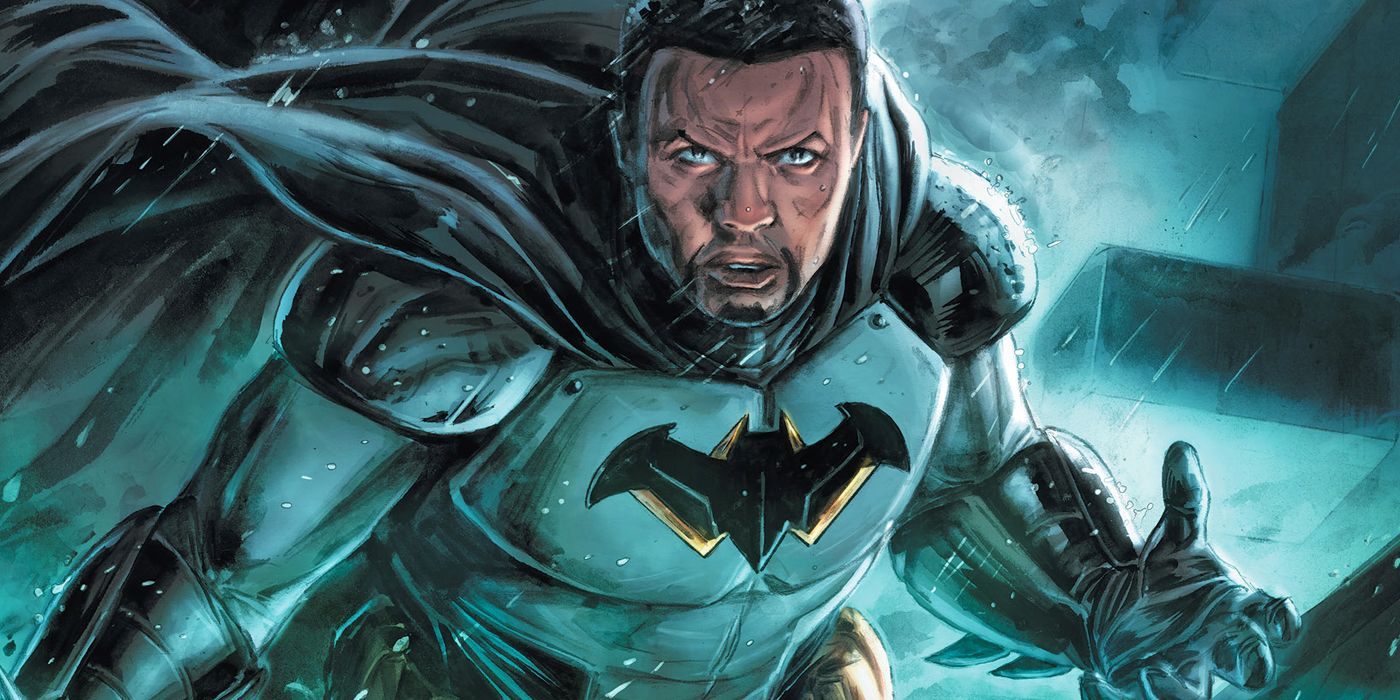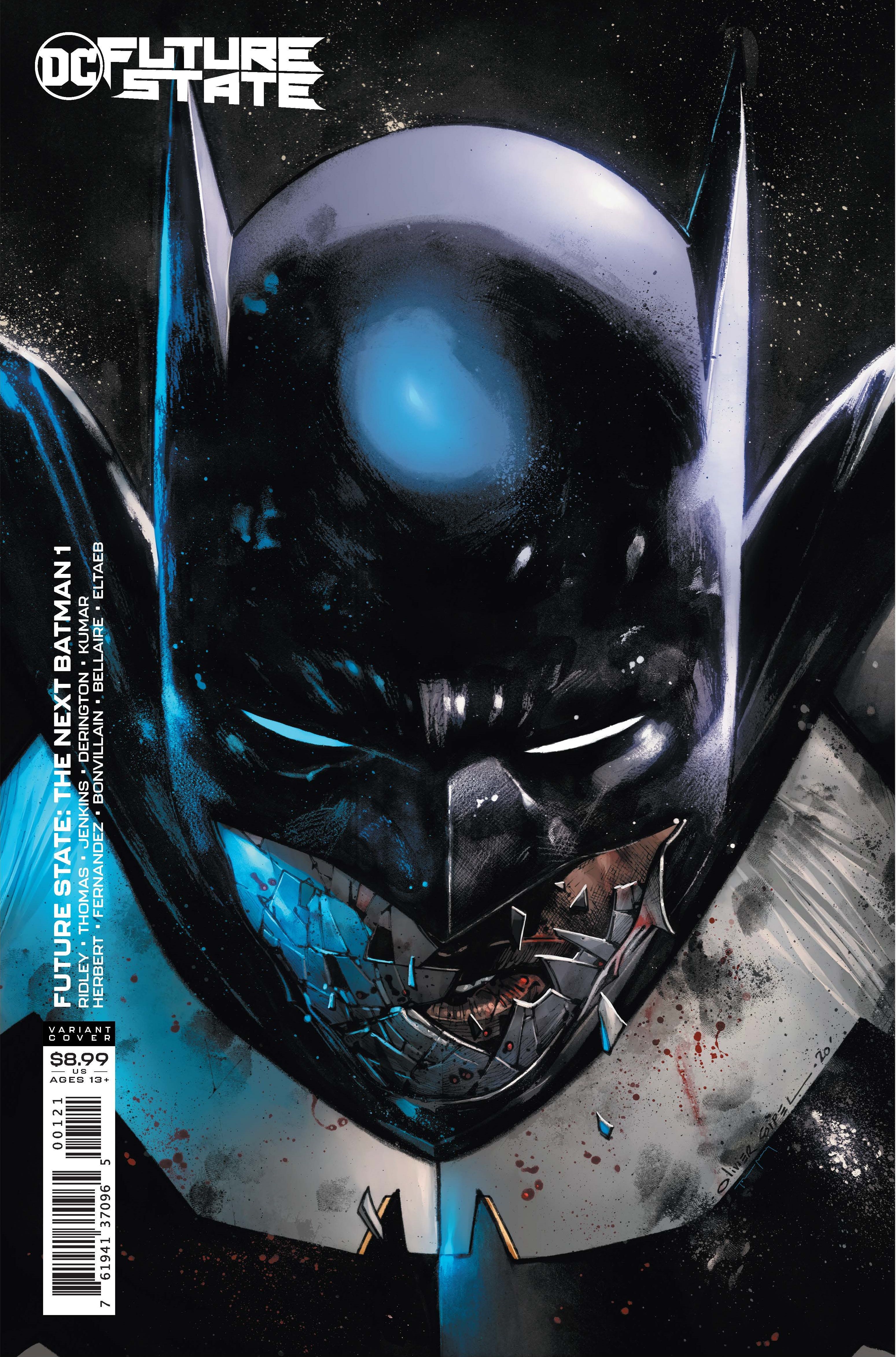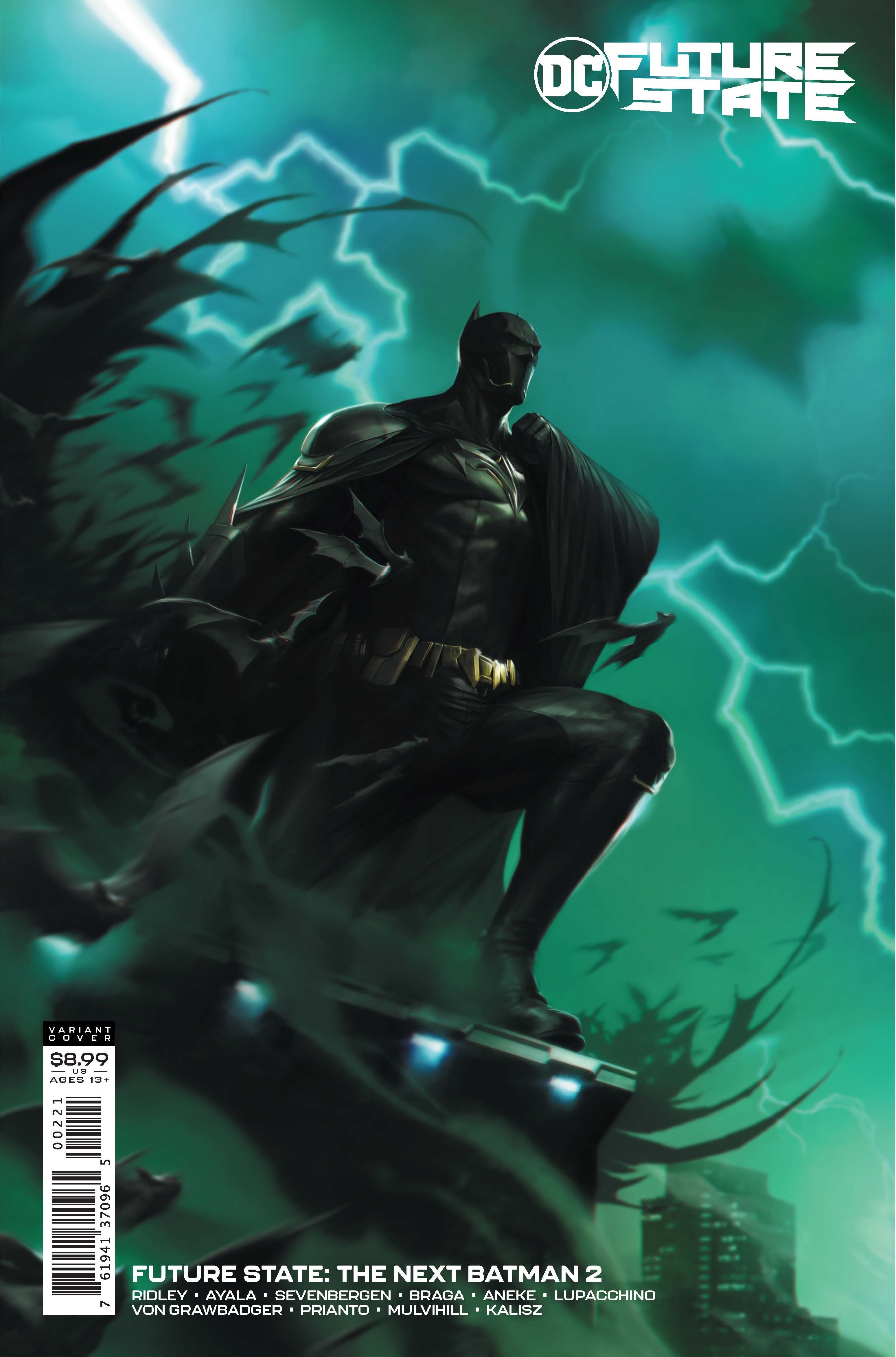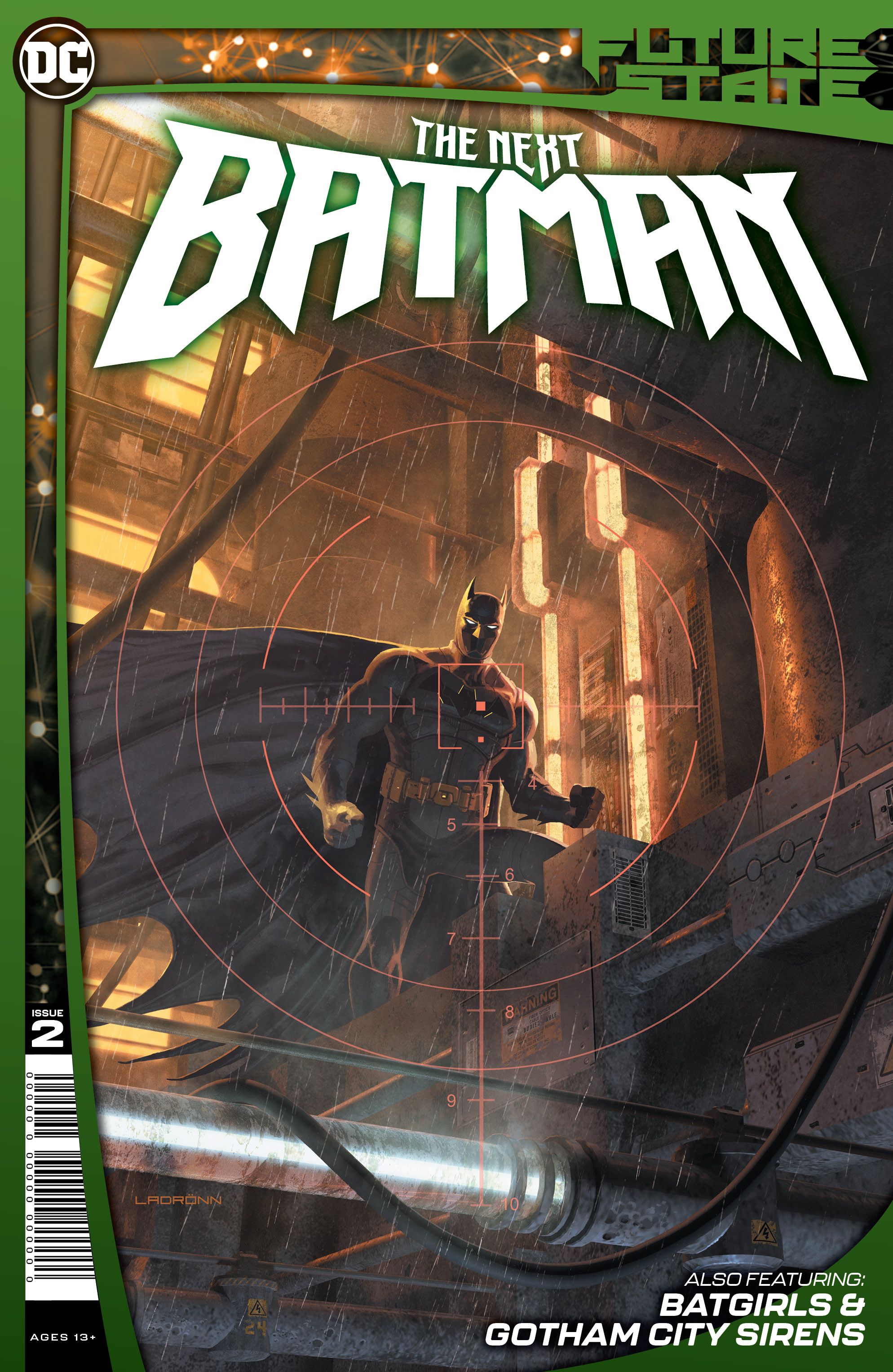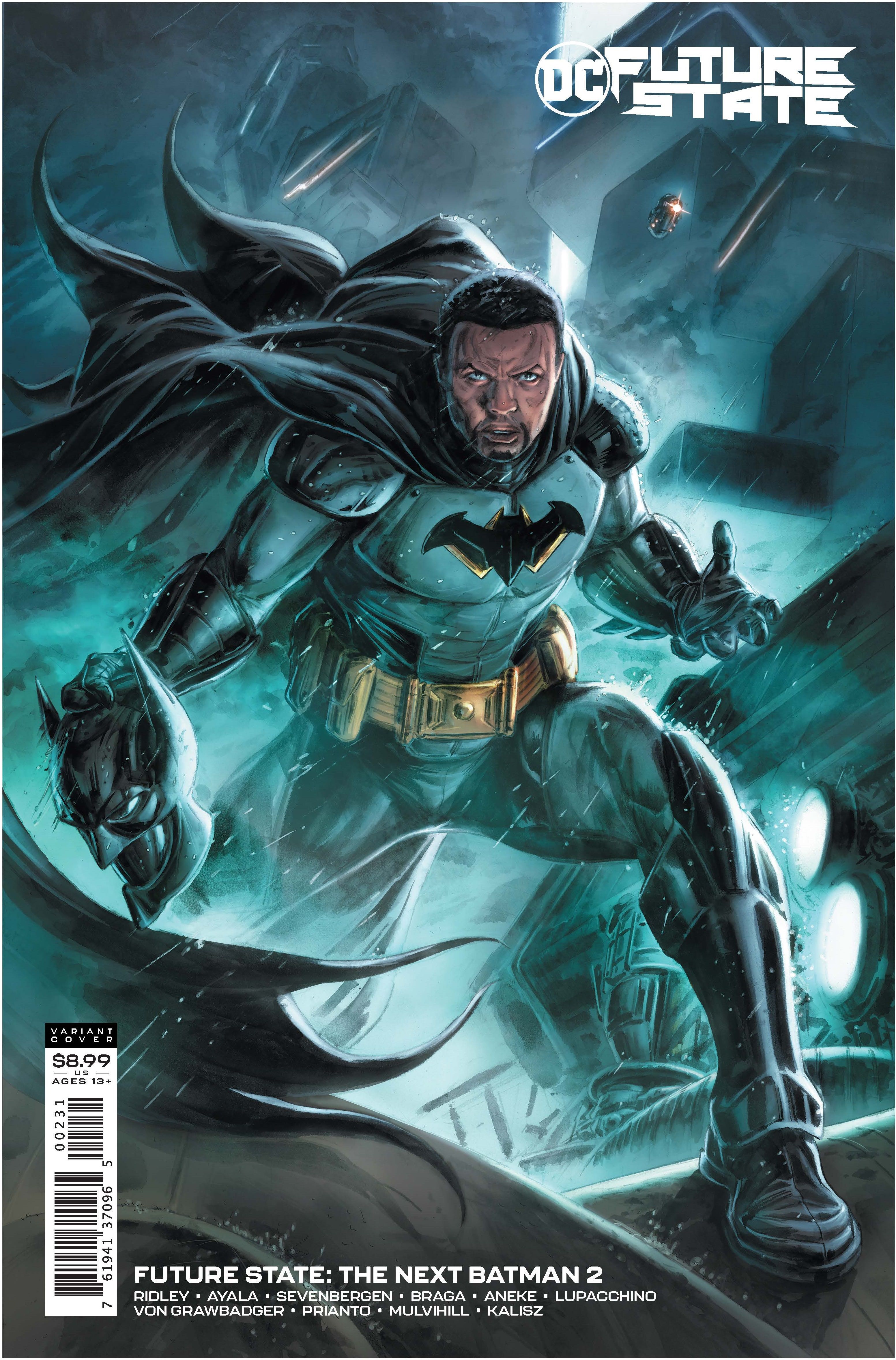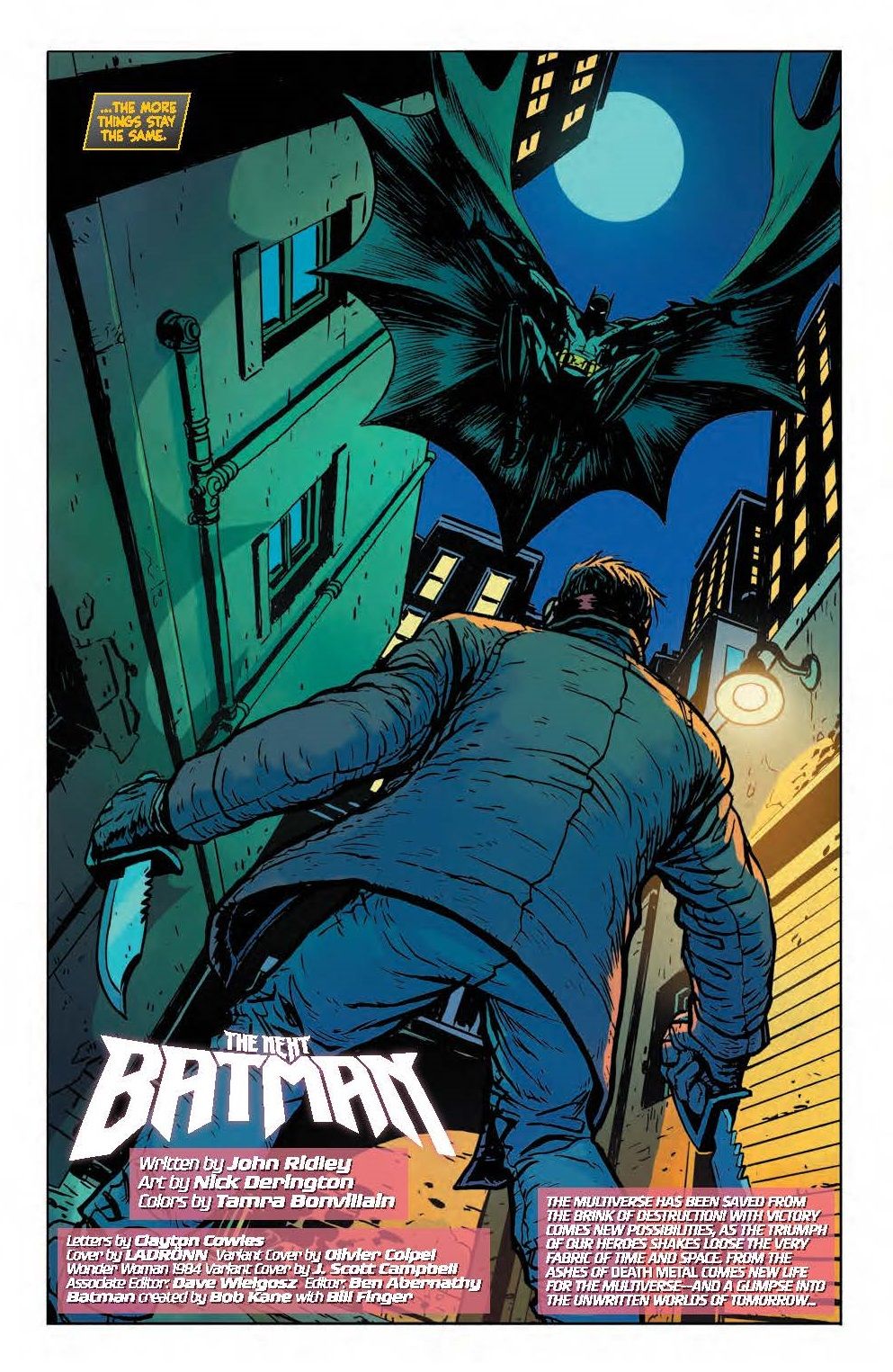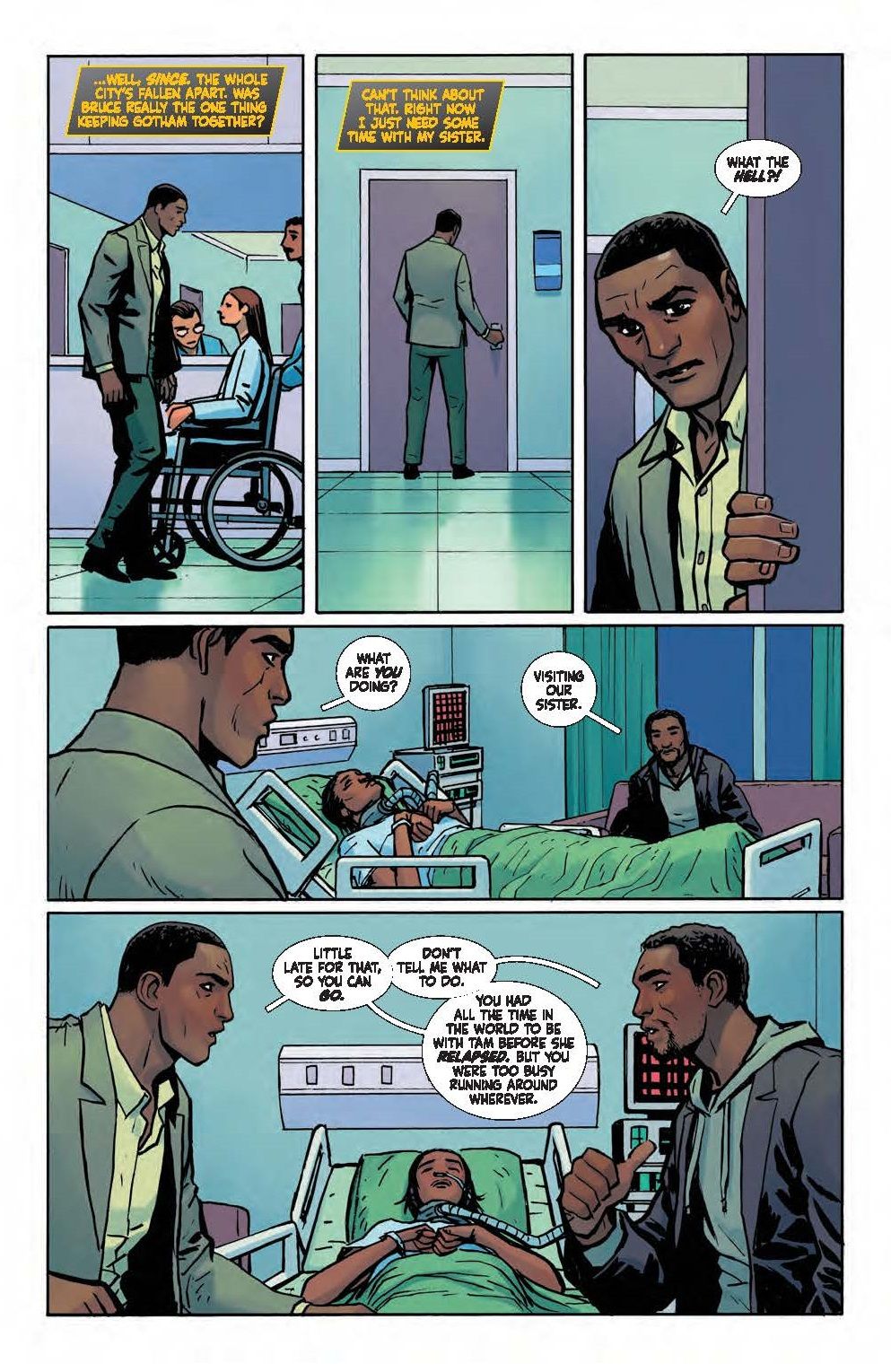With the highly-anticipated Future State: The Next Batman set to debut this week, award-winning screenwriter John Ridley (12 Years a Slave, American Crime) is helming DC's first event of 2021. This series will take a peek into the not-so-distant future of the DC Universe, particularly Gotham City, after the conclusion of 2020's Dark Nights: Death Metal. Ridley's four-issue series will include elements never seen before in a Batman title, which will revolve around the first mainstream DC Universe Black Batman, Tim Fox, and a Gotham that has outlawed the activities of all masked heroes and villains.
CBR had the opportunity to participate in a round table discussion with Ridley s prior to the debut of the four-issue miniseries with Nick Derington, where Ridley teased the direction he intends to take the series, the pressures of writing such a beloved character, and the mark he hopes to leave on the overall legacy of the Dark Knight.
When creating the story, was Tim Fox your first choice to be the next Batman or were there other candidates you had in mind?
Ridley: For me, Tim was the first choice. When I was invited in to start talking about this project, there was a real commitment to have Batman be represented as a person of color. As we were talking about the ideas DC had, there were things the executives really wanted to get into about perspectives, family, and privilege in ways that are not normally engaged in wider media. When we looked at all of those things, Tim was the obvious choice, and I'm very happy that he is the choice because it allows so much for the storytelling.
How much crossover will there be between the story in The Next Batman and Dark Detective?
Going into the next phases, I can't talk specifics for various reasons. But I can say that there is a long -term plan for what's going to happen. We wanted the story to feel unified. We don't want it to feel like there's a lot of different people operating in different spaces. That's good for the storytelling, that's good for the fans, and it's good for a cohesive universe.
Beyond that, there are very specific plans that will make Tim his own individual character with his own emotional velocity within his story. The universe will be unified and some very exciting things are going to happen. On the heels of "Joker War," there are plans for Tim to be able to engage in a very specific way on his own.
How would you like The Next Batman's adventures to continue post-Future State?
I hope that they continue in the way we planned for them to continue! There is a very exciting plan in place. This project is the result of more than a year of thought, planning and improvising, as well as test driving things. What we want to do with Tim is provide him with an infrastructure, a support system, and go into what's been going on with Tim since his absence from the Batman corner of the universe.
We're taking an approach much like we did with The Other History of the DC Universe, using elements that were already there but never fully explored and embracing them. In this way, we plan to articulate who Tim is, where he's been and the dynamics of his relationship with his family.
Bane is notoriously known as the villain who "broke the Bat." Is there any significance to having one of the new Batman's major adversaries being a group that models themselves after Bane?
That's a good question. I would say that there will be some interesting things going on with Bane. [Laughs] That's about all I can say. My apologies. That's a very astute question!
Do you feel like there's something Batman has been missing as a character or franchise that you wanted to bring into focus through The Next Batman?
I wouldn't say that there's anything missing, but I'd like to move away from a sense of false jeopardy. I want to add in elements in which the jeopardy becomes real for these characters. It's also important to me that things feel connected in some way to a world that is recognizable. If anything, the year that we've gone through, as difficult as it's been for people, is a reminder that life is not guaranteed, and that you should really appreciate the people in your sphere.
It's not like Batman has never lost. His whole narrative is built on the loss of his parents, which is a real connection to things that were happening during the Great Depression, when wealthy people were being murdered. Superman, as fantastic as his story is, is still the classic immigrant story and is a reality for families who just want to fit in and be thought of as part of the American fabric. Wonder Woman's story is of a woman coming from the outside during the war to show men how to be better. All of those stories were connected to reality and are the sort of things I want to lean into, things that feel fundamental and grounded and that produces a feeling of real jeopardy, and Tim Fox is an amazing vehicle for these kinds of stories.
There are a few stories from other creators involving members of the Bat-Family such as Batgirl and the Outsiders. Was there any opportunity to tie into these stories within the Batman: Future State titles?
Not for me, in regards to the stories that are going to a part of Future State: The Next Batman. Going forward, however, you will see a high degree of integration within the Bat-Universe.
The city of Gotham is considered a character itself, one of the most important characters in the Batman mythos. Can you talk a little bit about your version of Gotham and what struggles the city is going through in your title?
Without being overly specific, yes, Gotham is a character, and such a unique city. It represents any major urban area and all the challenges that goes with it, including people on both sides of the law. None of that is going away, and I want to lean into the human vastness of Gotham City.
There are difficulties in policing the city. Going into this series, the effects of "Joker War" hasn't gone away. There are going to be changes within the hierarchal structure of the Gotham City Police and its governing body that have long-lasting effects. Tim Fox, who has been away while all of this is going on, is arriving back in Gotham with a hyper-focused agenda to a prominent family in a city that remains a huge character and will continue to be so in The Next Batman.
I'm curious about the timing of the release. How did this become a part of Future State as opposed to a stand-alone book or a maxi-series?
Who's to say it isn't part of many of those things? [Laughs]
There have been other characters who have worn the cape and cowl. What are the challenges of creating a new version of Batman?
That's a very good question! It wasn't so much the challenge, but the opportunity with Tim Fox. There are folks out there who have wanted the mantle and were even trained by Batman. Why did they want it? What drove them to it?
For me, it was about being hyper-specific with Tim because so much of his origin story didn't exist previously. To have this kind of void and to make his journey so specific within his family that has so many secrets and has been around Bruce and Batman so intimately, is going to lead to a very specific version of Tim Fox and Batman. There are many characters out there who could have been Batman, but I didn't want to have to force change or modify anything, and using Tim allowed for a very particular narrative in the creation of his incarnation of Batman.
What are some of the differences in the way that Tim Fox and Bruce Wayne approach the role of Batman?
For me the biggest difference is family. Everything about Bruce is driven by the loss of his parents, and he has never been good at connecting with other people. He is driven by an innate desire to war against crime, but underneath it all, he's doing it because deep down he really just wants his parents back. It has made him a very lonely man and a compelling character in literature.
Tim is also driven by his family but in a very different way. He's going to have to reconcile his issues with his family in real-time. He has to deal with everything that goes on in a family, such as pride, love, and respect. What excites me is the opportunity to highlight these differences, and show that these motivators make him unique. All of the motivators in the story, not only with Tim but with the other characters, are centered around family and is a demonstration of how everything we do is wrapped around the idea of family.
In The History of the DC Universe, you tackled a difficult subject and made it accessible and understandable for all readers. What are some of the themes we can expect to see in The Next Batman?
One of the big themes I want to tackle is identity. Figuring out who you are is important at any age. A lot of the messaging is going to be for the younger demographic. So much of the hero culture is the difference between who the heroes are in and out of the mask. The idea of living in dualities excites me, because so many of us live in different worlds. We live in the world we know, and we live within the prevailing culture. It's just baked in. A family of color becoming a very rich and prominent family is compelling and interesting. Family is a big thing, but identity is the other big pillar in the story of Tim Fox.
Batman is known for his sidekicks. Can we expect to see Tim working with some allies?
Yes. Most Definitely. One of them has been teased already in some amazing artwork coming out in Batman: Black and White. One of the exciting things has been able to ask editorial about using different characters. Picking characters to interact with Tim and building his orbit has been really fun. So yes, Tim is going to have a support structure, partner, and mentors, and I'm excited and looking forward to all of it!
Future State: The Next Batman is on sale January 5, 2021 from DC Comics.

